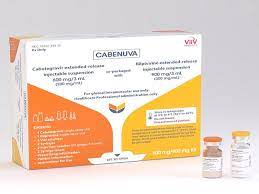Pfizer, Inc. (NYSE: PFE), a stalwart in the healthcare sector, continues to be a focal point for investors seeking stability in an otherwise volatile market. With a market capitalization of $144.29 billion, Pfizer is a dominant player in the biopharmaceutical space, known for its innovative medicines and vaccines that address a wide array of therapeutic areas.
Currently trading at $25.38, Pfizer’s stock sits within a 52-week range of $21.59 to $31.39. Despite the recent price stagnation, reflected in a negligible change of $0.06, analysts see a beacon of potential upside. The stock’s average target price is pegged at $29.24, suggesting a notable 15.20% upside from its current price. This projection is underpinned by the company’s robust pipeline and strategic collaborations with industry giants like Bristol-Myers Squibb and BioNTech SE.
The valuation metrics present a mixed bag for investors. The absence of a trailing P/E ratio and a PEG ratio can be attributed to the fluctuating earnings landscape, yet the forward P/E ratio of 8.22 denotes an attractive valuation compared to industry peers. Pfizer’s free cash flow of over $15 billion underscores its financial resilience, providing a cushion to navigate the challenges posed by a revenue decline of 7.80%.
Pfizer’s dividend yield is a compelling 7.10%, making it an attractive proposition for income-focused investors. However, this comes with a caveat—the payout ratio stands at 122.46%, indicating that the company is distributing more than its earnings. This raises questions about the sustainability of such high dividend payouts in the long term, especially in the face of ongoing market headwinds.
The stock’s technical indicators offer further insights. The Relative Strength Index (RSI) of 79.34 suggests that the stock might be overbought in the short term. Meanwhile, the MACD of 0.39 alongside a signal line of 0.28 indicates a bullish momentum, which could bode well if sustained in tandem with broader market improvements.
Pfizer’s performance metrics paint a picture of cautious optimism. While the EPS stands at a modest 1.38 and the return on equity is at 8.62%, the company’s strategic focus on high-demand therapeutic areas like COVID-19 treatments and vaccines, as well as its robust pipeline in infectious diseases, positions it well for future growth.
On the analyst front, the sentiment is largely mixed with 9 buy ratings, 15 hold ratings, and a lone sell rating, reflecting cautious optimism. This cautious stance is echoed in the target price range of $23.00 to $42.00, highlighting differing opinions on the stock’s valuation and potential.
Pfizer’s strategic investments in cutting-edge technologies, including mRNA and antiviral products, and its diversified portfolio of biopharmaceuticals continue to solidify its position as a leader in the healthcare industry. For investors, the key will be to weigh the immediate challenges against the long-term opportunities inherent in Pfizer’s strategic initiatives and its ability to adapt to evolving market dynamics.
As Pfizer navigates these complexities, investors should keep a keen eye on its strategic moves, financial health, and market trends to make informed decisions.









































